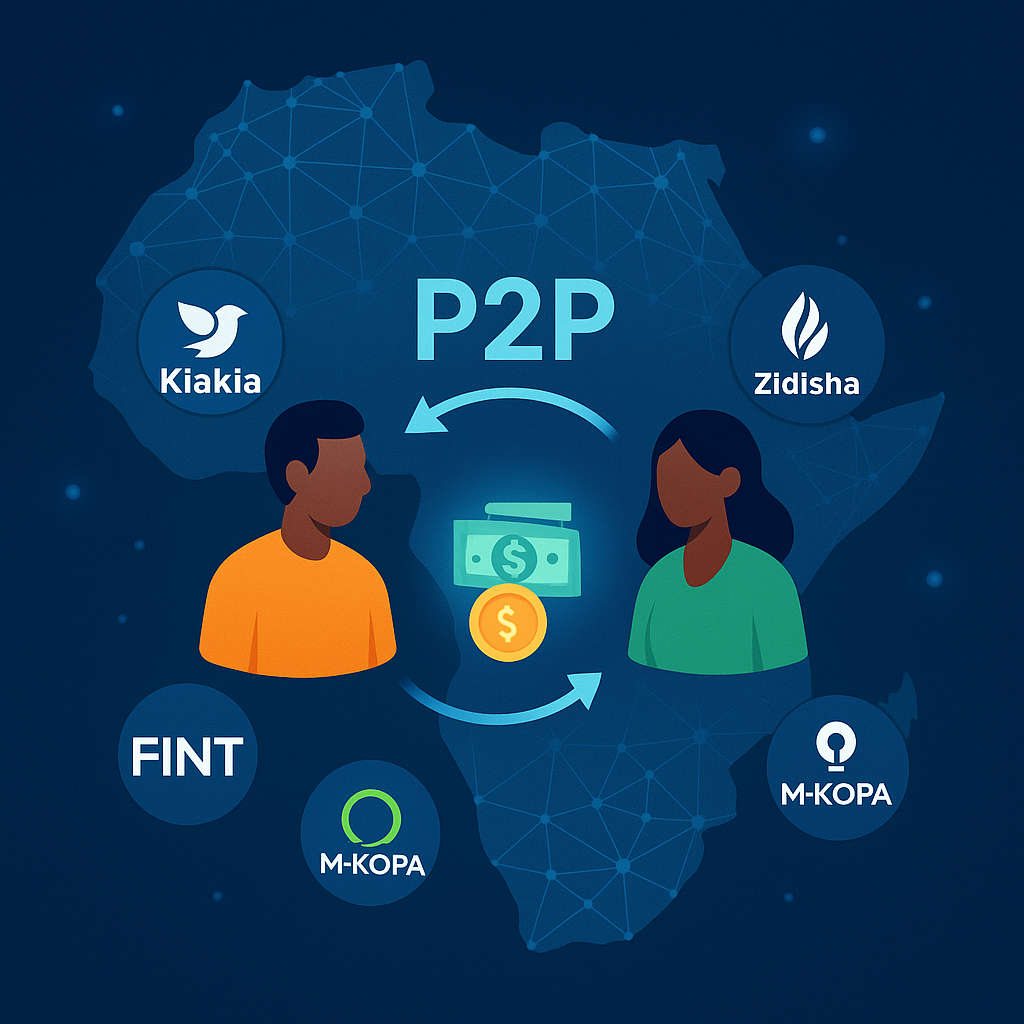“I just needed ₦50,000 to fix my car and get back to work. My bank laughed me out of the room.”
This isn’t fiction. It’s a common story for millions across Africa.
If you’ve ever stood in line at a bank, heart pounding, only to be told you don’t “qualify” for a loan because your paperwork isn’t perfect—or because you’re not “bankable enough”—you know how it feels.
Frustrating. Dehumanizing. And honestly… unfair.
But what if I told you there’s a quiet revolution happening across the continent? One that’s giving power back to the people—whether you’re a struggling student, a small business owner, or someone trying to make ends meet? It’s called peer-to-peer lending. And it’s changing the game.
Table of Contents
What Is Peer-to-Peer (P2P) Lending, and Why Should You Care?
Imagine this:
Instead of begging a bank manager, you post your loan request online. And within hours, real people—not institutions—fund your loan. People who believe in your dream. People who want to grow their money while helping others grow too.
That’s P2P lending in a nutshell.
And in a continent like Africa, where nearly 57% of the population is unbanked, it’s a lifeline.
Why Is This So Powerful?
Because banks still play by old rules. They ask for:
3 months’ payslip (what if you’re self-employed?)
Collateral (what if you have none?)
A guarantor (what if your network is struggling too?)
But P2P platforms don’t care if you don’t wear a suit or don’t own property. They care about your story, your data, and your willingness to pay back.
Let’s take a journey across the continent to meet some platforms turning rejection into redemption.
🇳🇬 Nigeria: Hustle Meets Hope
1. Kiakia
Kiakia (which means “fast” in Yoruba) isn’t just a name—it’s a promise.
It has disbursed over ₦6 billion in loans, helping everyday Nigerians access short-term credit (₦10,000 to ₦200,000) without collateral or face-to-face meetings.
You apply online. If your data checks out, the money hits your account. No begging. No long story.
2. FINT
FINT is like Nigeria’s version of a Wall Street-Lagos mashup. It connects real people with real money to borrowers with genuine needs.
If you’re tired of banks treating you like a statistic, FINT treats you like a human with a future.
3. P2Vest
Need up to ₦2 million with longer payment plans (up to 12 months)? P2Vest got you.
Fast approvals. Transparent interest rates. And for lenders, it’s an easy way to grow money while empowering fellow Nigerians.
🇰🇪 Kenya: The Silicon Savannah of Microcredit
1. Zidisha
No paperwork. No credit score. Just an ID, a mobile phone, and a reason.
Zidisha strips borrowing back to basics—and builds community in the process. It’s crowdfunding for your dreams.
2. UbaPesa
UbaPesa is like the Tinder of finance. You swipe into a loan. Borrowers and lenders match based on terms and credit behavior. And all of it happens over mobile.
Loans come in fast, and you repay over 10, 20, or 30 days—with interest as low as 8%.
3. PesaZetu & PesaPata
Both platforms use Kenya’s mobile-first culture to give instant loans. Just register online, request the loan, and the money lands in your M-Pesa account within minutes.
For the average mama mboga or Jua Kali artisan, this is access redefined.
Pan-African Giants with Big Dreams
1. M-Kopa
M-Kopa doesn’t just lend—it changes lives.
Operating in Kenya, Uganda, Ghana, Nigeria, and South Africa, it lets you finance smartphones, solar kits, and more with tiny daily payments.
Over 5 million people have used M-Kopa to unlock credit and improve their lives. That’s not fintech—that’s future-tech.
2. JUMO
JUMO isn’t just a platform. It’s a data wizard.
It works with mobile network operators to give loans based on things like how often you use your SIM card, your mobile money habits, and your airtime top-ups. No bank statements. No excuses.
Over 10 million loans disbursed across Tanzania, Kenya, Zambia, Rwanda, and Uganda… and counting.
So, Is P2P Lending the Future?
Let’s be real—peer-to-peer lending isn’t perfect.
Some platforms are unregulated. Others might charge high interest. And just like with anything money-related, there are risks.
But here’s the truth:
In a continent where banks still think credit is a luxury, P2P lending is proving that credit is a right—not a privilege.
It’s about more than just borrowing money. It’s about reclaiming dignity, unlocking potential, and building a system that finally works for us.
CONCLUSION
If you’ve ever been told:
“Sorry, we can’t help you.”
“Come back with collateral.”
“You don’t qualify.”
Just know this: You do qualify. You just need to knock on the right door.
And that door might just be a peer-to-peer platform run by people who believe that your hustle is worthy of credit.
Welcome to the future of African finance—where people fund people, dreams get wings, and nobody is left behind.
Inspired to explore?
Start with platforms like Kiakia, Zidisha, or M-Kopa—depending on your country—and see how you can borrow smart, invest wisely, or simply support a fellow dreamer.
Because in Africa, we rise together.


